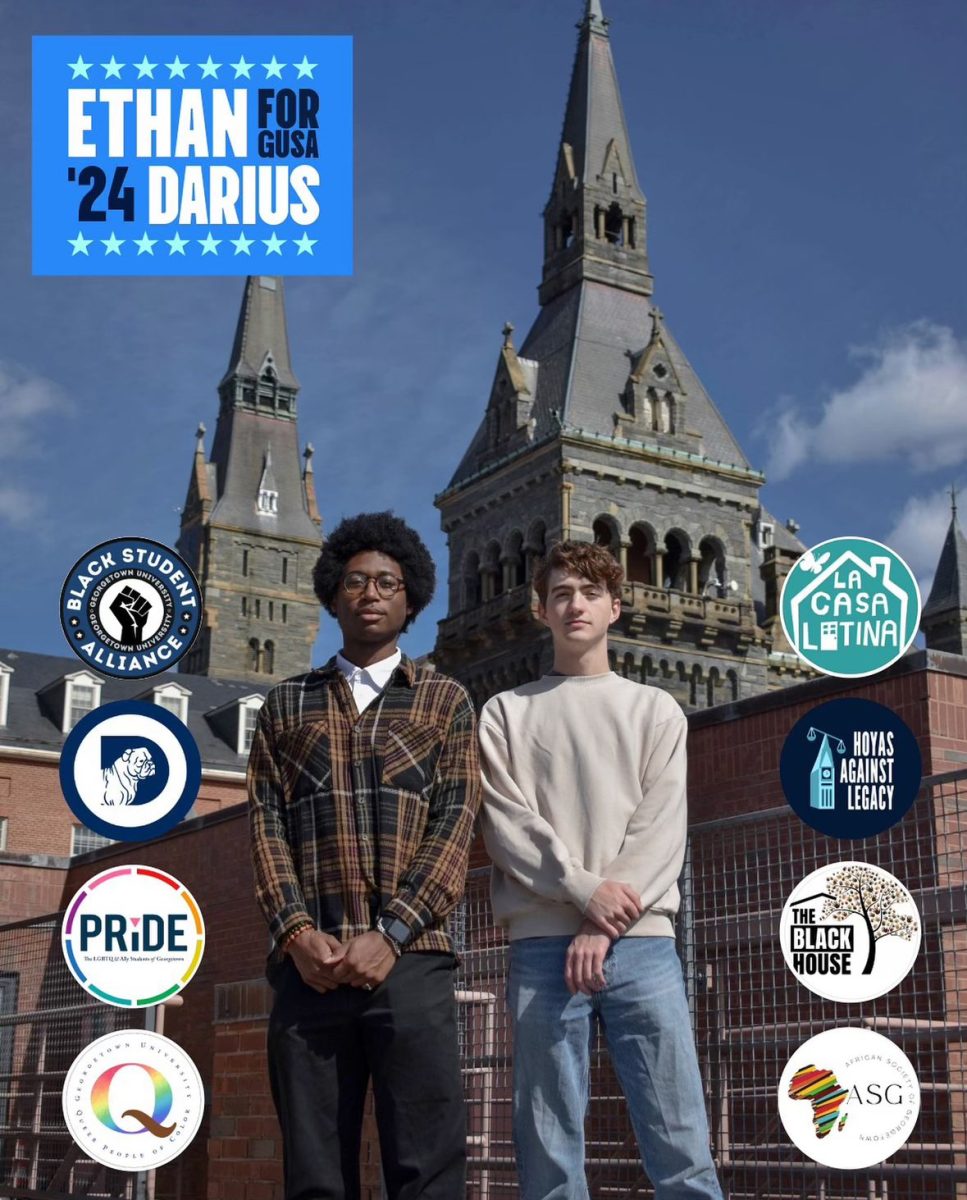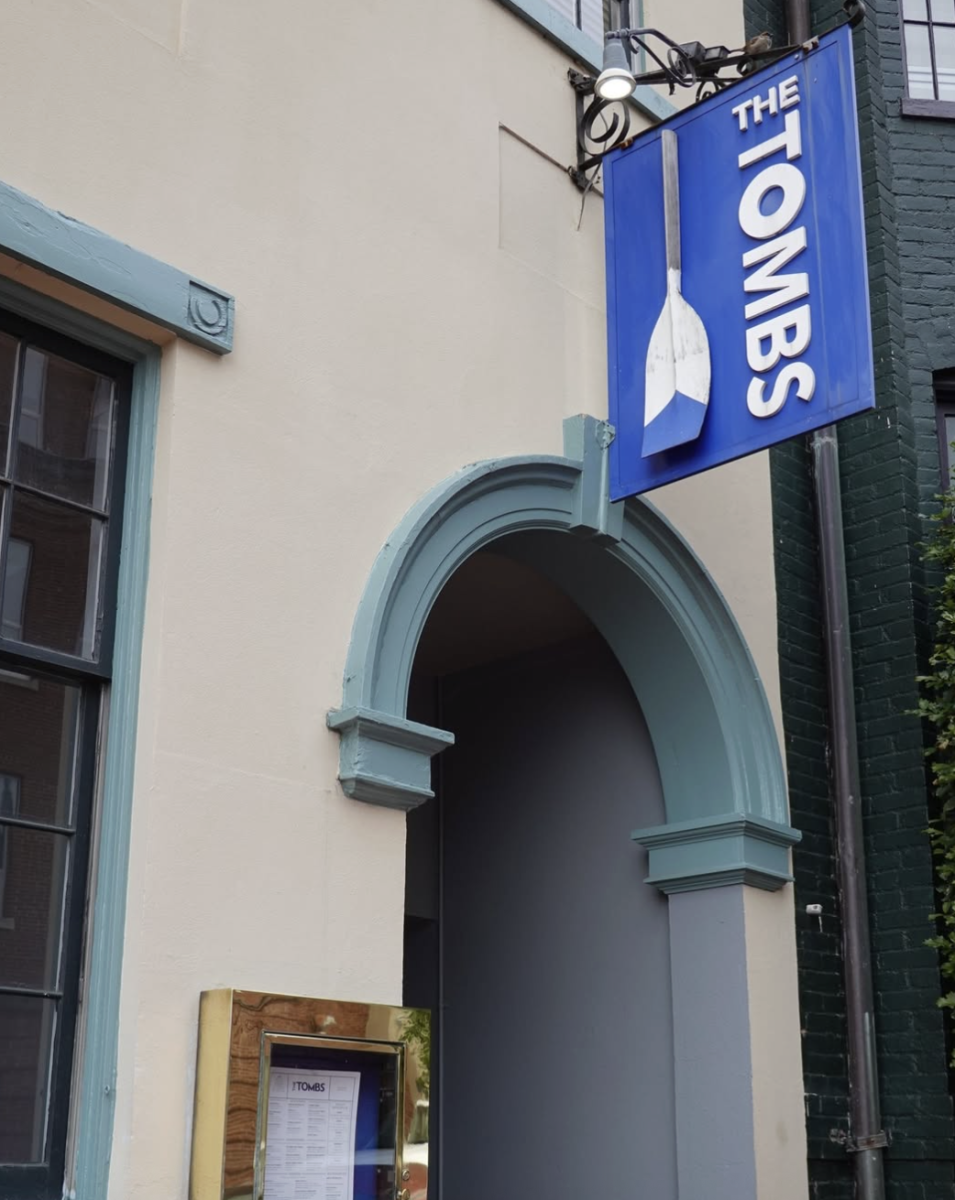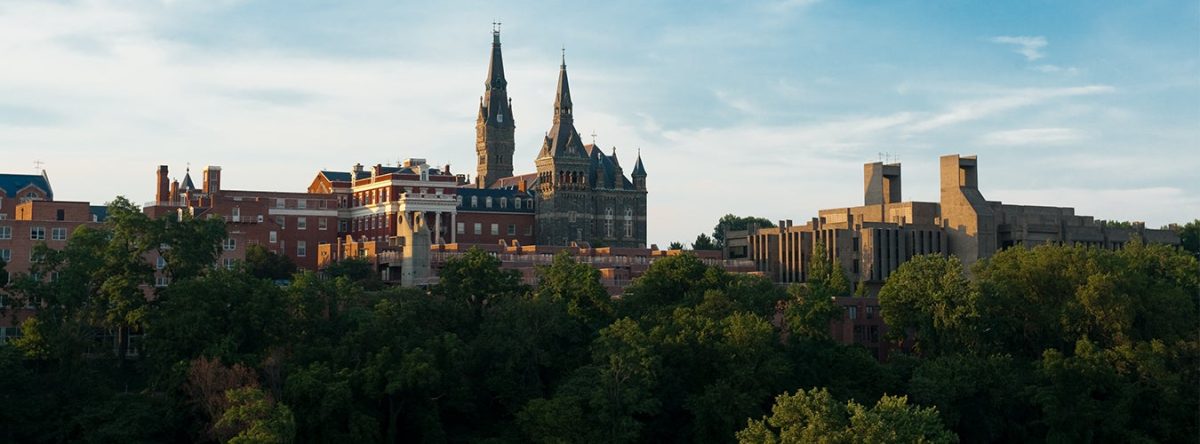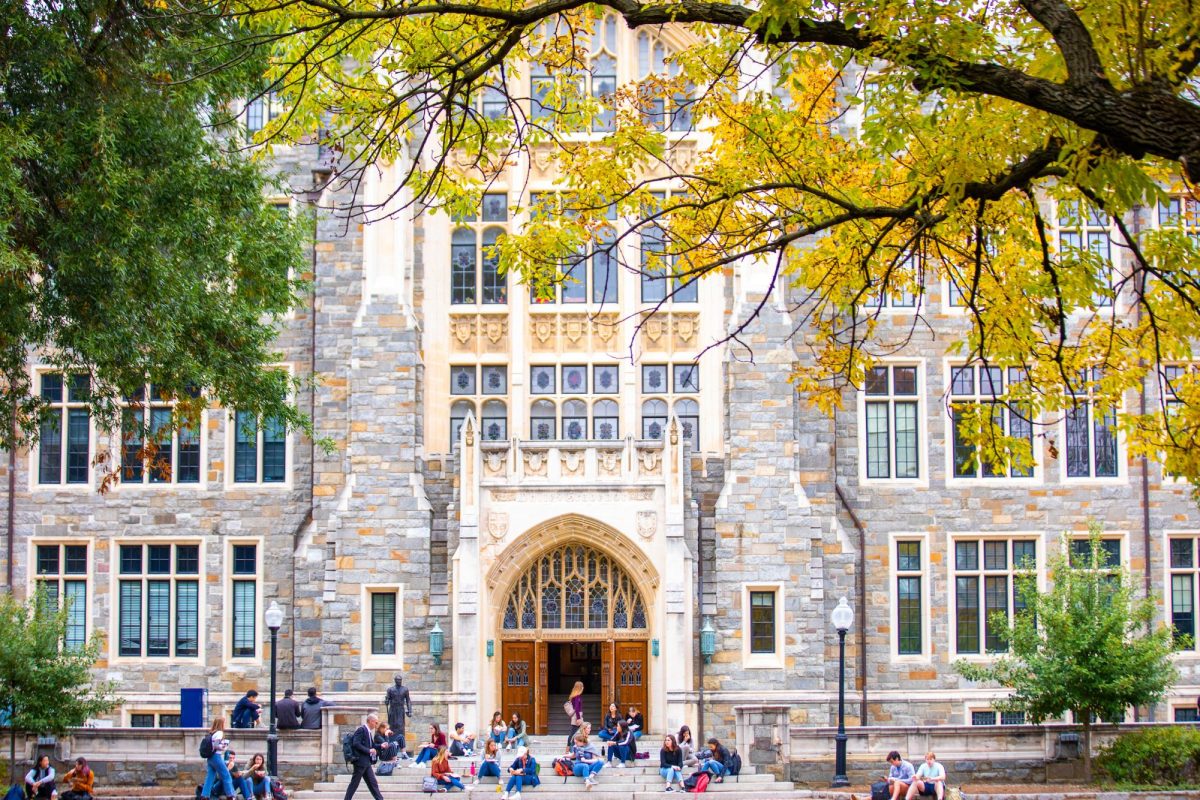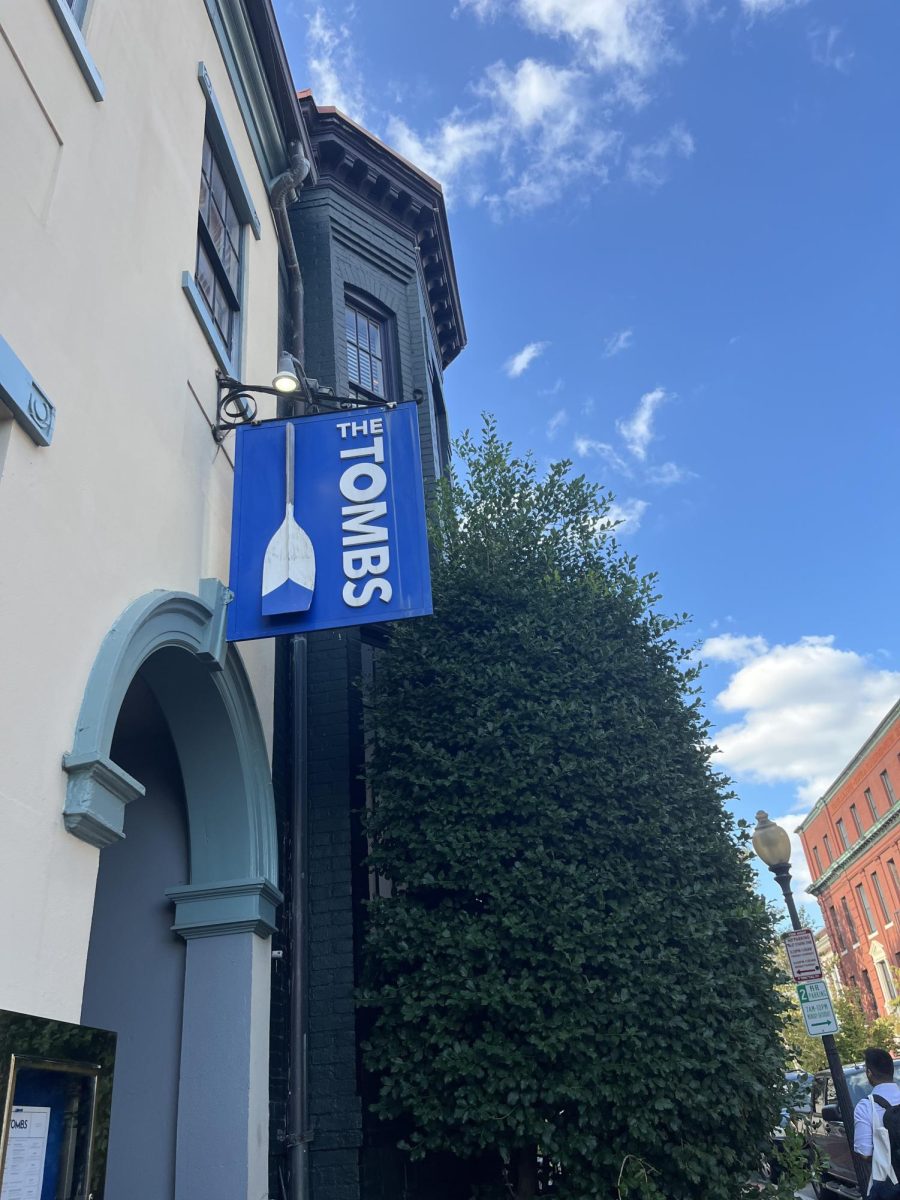Ethan Henshaw (CAS ’26) and Darius Wagner (CAS ’27), who are running for Georgetown University Student Association (GUSA) president and vice president, say that if elected, they plan to support fair admissions practices, increase GUSA transparency and rejuvenate community spaces.
The Hoya sat down with Henshaw, who currently serves as a GUSA senator, and Wagner, GUSA’s director of financial accessibility, to discuss their campaign and prospective plans. Voting opens Nov. 5 and closes Nov. 7.
Below is a partial transcript of the candidates’ discussion.
Why are you running for GUSA?
Henshaw: We’re running for GUSA because we’re both very passionate about campus advocacy and local advocacy. We’ve been involved with campus advocacy for a very long time, and we think that we can reform GUSA and build us up to do better and take advantage of its relationship with admin.
Wagner: We want to be there for our clubs. We want GUSA to be actively involved in our student body — and I believe that’s another reason we are in this race, because we’re not in this to stuff a resume or to do something for our future career. We’re in this because we care about helping campus life, and we care about bringing back some more fun and bringing our communities together.
If elected, what are your top priorities?
Henshaw: Admissions is really important to us. Especially after the affirmative action decision and the campaign we’ve been doing, it seems to be getting less and less economically and racially diverse at Georgetown. We think that impacts people and the way they interact with this campus the whole four years here. The makeup of this campus is very important, so we’d like to help there.
Wagner: We want to see debit dollar reforms. This goes to financial accessibility, to allow students to use debit dollars not just to have access to late-night dining, like Wingo’s and Wisey’s, but also to be able to purchase toiletries from The Corp and get their necessities.
How do you believe you will be able to accomplish the goals you set and follow through on your campaign promises during your term?
Henshaw: We want to build out a very robust and diverse executive team that we can delegate tasks to. They can be put in meetings so that we can say, “Alright, you’re going to be tasked with this, you can meet with these administrators.” Then, have those conversations regularly and see how it’s developing and put as much pressure and have as much efficiency and as many voices in the room as possible so that we can get them to move on the issues.
Wagner: What we see is a platform where we are able to be strong advocates and where we know the work that goes into accomplishing many of these goals. So building out a strong organization, a strong team and having a timeline and a plan of how to implement each of these is something that we will be acutely focused on and be able to deliver.
How will you address GUSA’s low approval and skepticism from the student body? How will you keep voters engaged with GUSA throughout the year if you win the election?
Wagner: Our plans include ensuring that we are maintaining consistent outreach to club leaders and club organizations, but also other institutes and other groups on campus.
Henshaw: Even just being transparent, like we’re working on this, the university is working on that, get a statement out and just kind of making sure the student body knows what is going on.
Student protests over the war in the Middle East have been occurring across campus since April. What is your position on these protests? Should the administration allow them more free rein or crack down on them?
Henshaw: I think students have every right to protest against issues that they see going on on campus and that’s one part of our policy. And I don’t think we’re seeing that much of a problem because you can protest in Red Square for free. Everyone deserves the right to feel safe.
Wagner: College protests have been some key mechanisms as to raising issues to a lot of important issues of our time, and students should have the right to do that. We should be keenly aware of safety just around Islamophobia and antisemitism during this time because students are bearing a lot of this and they’re very real experiences where students are experiencing significant stress, and also bias incidents, just by existing in certain spaces because of this. This is something we take very seriously.
Should Georgetown end legacy admissions?
Henshaw and Wagner: Yes.
Should Georgetown divest from companies such as Amazon and Alphabet with ties to the Israeli military?
Henshaw: Short answer, yes, we support divestment. We’d like to communicate with admin to see how the investments can be replaced, how it will impact Georgetown infrastructure — like our mail system and accounts — and how it will affect the budget in terms of financial aid. However, I strongly believe that Georgetown has an obligation to invest its endowment responsibly and morally.
Why should people care about this election?
Henshaw: I think they should care a lot about the elections, and Darius and I are really dedicated. I think we’ve shown that we can do work and get big things done in the past, and I think now we’re asking to have access to the administrators on a regular basis, and I think that’s really important to us and people to have those conversations up close. I think we’ll be able to get a lot done.


